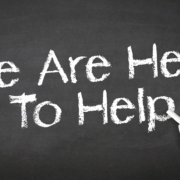When Going Along Gets in the Way of Getting Along in the Family. Better Communication Can Help
“Stop fighting with your siblings!”
“Because I said so!”
“Do I have to separate you?”
Every family develops its own unique family rules, ways of getting along and getting things done. These may be influenced by experience, culture, history and background, environment, socio-economic issues, beliefs, communications styles, and many other factors. What may be common or routine in one family may be entirely foreign to another.
In some families, children are taught that parents make and communicate the rules, and (at least in theory) the kids follow them. In others, parents have more inclusive ways of making decisions and receiving input. There’s no one-size-fits-all approach.
So what do you do when the kids grow into adults, the parents grow older, and more decisions impacting “the family” need to be made together?
What do you do when the old, familiar, ways of doing things in your family may no longer be enough to meet today’s – or tomorrow’s – needs?
Family Dynamics Will Change
As families age, the needs and roles of family members change as do the ways they relate to each other.
To take just a few examples, as children grow older they not only assume new responsibilities and expectations, they also establish their own lives – whether thousands of miles away or around the corner. School, relationships, marriage, divorce, children, careers, distance, illness, and other major and smaller life events all bring new perspectives and dimensions to their place in the family and their relationships with other family members.
The roles and needs of the parents likewise evolve as they progress through their own life journeys:
- children leave the “nest”
- job or career changes
- retirement
- marital status changes
- supporting adult children or other family members
- setting up and managing the supports they themselves will need as they age
- moving into new living arrangements
- making medical care, financial, or estate plans (living wills, health care proxies, end of life planning, etc.)
Any of these can be complicated by distance, illness, downsizing, changing (physical or mental) capacity, dealing with isolation and loneliness, and the many other changes that affect aging adults.
It can be difficult for parents in any family to talk honestly and openly about their concerns and needs with their adult children, especially if that means transitioning from their “in-charge” parental, caretaking roles to one where they require more support. It can also be difficult for the adult children to have these types of important conversations with their parents before circumstances require that they do so.
Given all of this as backdrop, it is unsurprising that for many families communication and decision making will occur on an if-when-and-as-needed basis, reacting to circumstances once they arise, rather than in advance before things become urgent. The impact is that the family comes together when fires need to be put out, and less work is done together to prevent the fires.
Good Communication Is Good for Family Relations
The ability to engage in open and honest communication can be the difference between families staying in-step and having events overtake parents and children when they need to rely on each other the most. Communicating in ways that are conducive to working together is a skill that for some families means (finally) addressing, or at least putting aside, the issues, habits, and patterns that no longer serve them.
It can be complicated, to say the least. More so when when issues are urgent and time to act is short.
Effective communication is an important skill, and just like other skills, it requires practice, attention, and sometimes support.
Creating a family culture that values good communication can:
- Enhance relationships
- Broaden perspectives and understanding
- Create opportunities for cooperation, and new ideas
- Make room for problem solving
- Build and enhance connection
- Make it easier to keep everyone informed and up to date
- Build consensus and more durable, inclusive agreements
When there is space to hear each other and be heard – to move beyond reacting to engaging with each other – concerns, fears, disagreements, and conflicts have a chance not only to be raised, but to also be addressed. When better communication becomes part of the family culture, it can be transformative.
Avoiding Difficult Conversations Isn’t the Same as Conflict Prevention
For some families, conversations about important, but difficult issues can be strained, painful, and sometimes even nonexistent, especially when the principle of “conflict avoidance” is the family norm.
It can be easier in the moment to avoid potentially charged topics in favor of minimizing disagreement. There are many ways that “let’s talk about something else” can become the option of choice embedded in the family dynamic.
The difficulty is that instead of addressing differences and finding common ground, the problems, concerns, issues and needs put off for later do not get fully addressed, and sticking points get left unspoken or unanswered: left to grow like weeds.
This can be especially problematic when the unresolved issues involve family members who feel put upon or excluded from important decisions. Consider for example the adult sibling who is local to their aging parents, and who is the first call when the parents need things done, but whose input is nevertheless excluded or not given the weight of the more “favored” sibling when important decisions involving the parents are made.
Without an inclusive means for getting everyone’s voice, needs, and concerns into the conversations, the likelihood of resentment, division and conflict increases as the unspoken issues are left to fester. The cost is family cohesion, alignment and teamwork. The chances that this family (or families like it) being able to stay in step and create solutions that will work for everyone will tend to decrease over, as the likelihood of conflict increases.
At some point, going along can become the reason family members aren’t getting along.
One way or another, the toll of ineffective or avoidant communication eventually comes due.
Tips to Make Family Communication and Decision Making Easier
The good news is that less stressful, more productive family conversations are possible.
Coming together to create guidelines for better communication can, itself, be a family process for building confidence and strengthening connections.
Spend time thinking in advance about how the family will engage with each other. Having a pre-determined structure can help important conversations stay on track. Process is often best addressed when things are quieter and emotions aren’t running as high – ideally before the time comes when a family needs to come together to deal with issues. ,
Think of process planning as part of family conflict prevention.
Here are some tips that as a family mediator and facilitator I’ve found useful. Before having an important family discussion, consider the following questions, together:
- Will there be an agenda?
- How will the agenda be agreed upon?
- How will the family get together to discuss the issues? In person? Remote? Both?
- How will decisions be made?
- How will you decide who will be involved in different decisions?
- How can you make sure that everyone has a chance to be heard?
- How will responsibility be delegated?
- How will you keep everyone in the loop?
In my experience, a facilitated “family meeting” can sometimes be helpful when a family wishes to establish a new, more effective system for engaging with each other. Including a neutral person focused on the process itself can help create an atmosphere where family members are better able to hear each other and get what they need on the table.
All of this takes work and change takes time. In my experience, it is not only possible to create better ways to work together as a family, but the potential benefits – better engagement, reduced stress, and increased teamwork and cooperation – can strengthen the ways that families come together and stay together.
Erik M Feig is the founder of Feig Mediation Group, a family mediation service located in Bethesda, Maryland that helps parents and families have more productive, less stressful discussions about important issues. If you are interested in creating a path to more aligned, constructive family meetings and decision making, contact me at erik@feigmediationgroup.com or visit our website at www.feigmediationgroup.com.











